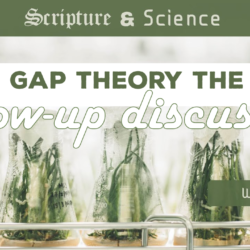This is now our last episode in this 24 part class on How We Got the Bible. Today after a quick review and an appeal to learn the biblical languages, I’ll recommend a number of Bible translations. Although I’m hesitant to do this, so many have written in asking for it that I would be negligent to avoid making some recommendations in this last episode. Additionally, we’ll cover a list of 7 verses you can use to check translations accuracy (see below).
—— Verses to Check for Translation Accuracy ——
- Genesis 4.8 Cain says “Let’s go into the field” (SP, LXX, Syriac, Vulgate)
- Isaiah 53.11 “he shall see light” not “he shall see it” (DSS, LXX)
- 1 Samuel 14.41 does it say “Urim?” (LXX)
- Psalm 145.13 is it 2 sentences or just 1? (DSS, LXX, Syriac)
- Honesty about Mark 16.9-20 and John 7.53-8.11
- Revelation 22.19 “tree of life” not “book of life”
- Matthew 2.2 “pay homage” not “worship”
—— Recommended Translations ——
- Jewish Publication Society Tanakh (JPS): dynamic equivalence from Jewish perspective
- English Standard Version (ESV): formal equivalence from evangelical perspective
- New English Translation (NET): dynamic equivalence from evangelical perspective
- New American Bible (NAB): dynamic equivalence from Roman Catholic perspective
- New Revised Standard Version (NRSV): formal equivalence from a mainline/liberal perspective
—— Biased Translations to Avoid ——
- Message Bible (MSG): extreme dynamic equivalence
- Passion Translation (PT): extreme dynamic equivalence
- New Living Translation (NLT): dynamic equivalence
—— Outdated Translations ——
- 1769 King James Version (KJV): formal equivalence
- 1982 New King James Version (NKJV): formal equivalence
- 1995 New American Standard Bible (NASB): formal equivalence
- any versions not taking into account the Dead Sea Scrolls (see verses above to check)
—— Links ——
- Check out all the lectures in How We Got the Bible
- See what other classes are available here or on the Restitutio Classes podcast (subscribe in Apple, Spotify, RSS feed)
- If you’d like to support Restitutio, you can donate here.
- Intro music: Good Vibes by MBB Attribution-ShareAlike 3.0 Unported (CC BY-SA 3.0) Free Download / Stream: Music promoted by Audio Library







Hi Sean, I just wanted to mention again how much I have enjoyed this series on how we got the Bible. Thank you for spending the time and energy to make this a fascinating series of lectures. It has been one of my favorites. You definitely have my vote to continue it in the future with episodes regarding inspiration theories, the determination of the canon, etc.
Hi, as a former Orthodox Christian (now a unitarian Muslim), I wonder why is not the LXX – the Greek OT of the NT writers, your favourite bible? According to orthodox tradition starting with Justin Martyr, the Jews changed the OT, and the same Jews who decided the canon (and its content) also decided that the Mishna was canonical, too. So why being selective in following Jewish decisions, I.e. discard the Greek OT and Hebrew Mishna?
Yes, MCara – but was the LXX used (at times) by the apostle Paul (et al), the same version of the LXX as is used today in the Greek Orthodox Church ? Most probably not. May the resurrected Jesus, bless you.
I too thank you for taking the time to put this together. Much appreciated.
This is a bit off topic, only indirectly related to the subject of bias perhaps. I’ve recently become sensitized to the expression “sin nature.” Some of the folks I listen to regularly freely use the expression. I’m sure they would quickly acknowledge that this expression does not occur in Scripture, but… [it’s implied from the “fall” of Adam and various other Scriptures]. If you have addressed the topic, please point me in that direction. I’m drawing my own conclusions about mans’ condition post Adam’s disobedience, but not totally settled. I’m curious, for one thing, where/when this expression entered the Christian vocabulary. If it’s something that can be known, it might be good to know what was the “story” behind it.
‘Sin nature’, Ken, would be an interpretative translation (partly based on pretty sound inductive reasoning of Romans 7:14-24 = primarily, life under the Torah regime) of the Greek word ‘sarx’ (‘flesh’) – which intrinsically, has a range of legitimate possible meanings.
I am super interested in the study of inspiration. Can you point me to some good content? Audio is the most efficient for me, but anything I can get me hands or ears on would be GREATLY appreciated. Thanks for all your labor for the kingdom!
Hi Josiah,
I don’t have specific audio resources to point you toward at the moment, but I can recommend some good literature that I have found helpful. And if you are really interested in investigating this subject in more depth, I would highly suggest reading one of them.
Both of the books below are good. Carson is more technical than DeYoung.
D. A. Carson and John D. Woodbridge, eds., Scripture and Truth (Grand Rapids: Baker, 1992).
Kevin DeYoung, Taking God at His Word (Wheaton, IL: Crossway, 2014)
My personal view of inspiration is a concursive theory. B.B. Warfield of Princeton really championed this view. You can read about it more here: B. B. Warfield, The Inspiration and Authority of Scripture (Philadelphia: Presbyterian and Reformed, 1948). I took a class on the doctrine of Scripture where we went through his book and views on inspiration, inerracy, and infallibility.
I am currently reading Michael Kruger, Canon Revisited: Establishing the Origins and Authority of the New Testament Books (Wheaton, IL: Crossway, 2013) as I intend to do some work in the near future on canonicity.
One book that I want to tackle soon is: I. Howard Marshall, Biblical Inspiration (Grand Rapids: Eerdmans, 1983). It is an older book, but Marshall is a scholar that I greatly admire and have benefited from his research over the years.
I haven’t read it yet, but John Frame’s book on the doctrine of Scripture has received many accolades: John Frame, The Doctrine of the Word of God (Phillipsburg: P&R, 2010).
Hope this helps!
God bless,
Jerry
Hello, I thoroughly enjoyed this class. I learnt a great amount. In a separate podcast calvinism vs arminianism debate it was mentioned that the ESV Bible translation is perhaps the most Calvinistic translation. Could you please explain why that is….?
Thank you.